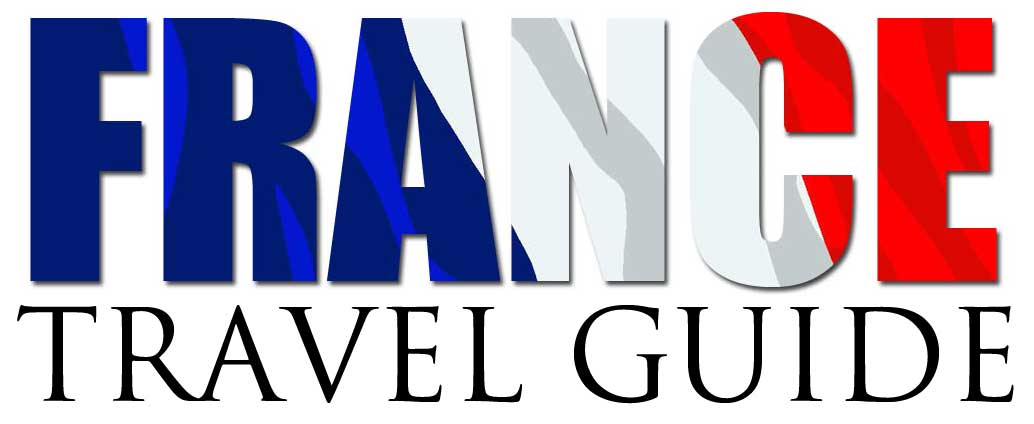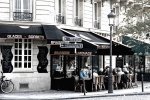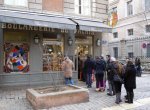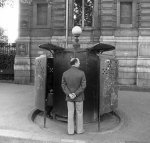when to go
Fundamentally, France is an all-year-round place to visit; there is no 'bad' time to go. Each season has something special to offer, as well as something unpleasant, usually – this is Europe, after all! But certain times of year may not suit everyone.
Depending on the reason for your visit, spring, summer and autumn are the best seasons to visit, and the French like to think, probably correctly, that there is a region to suit every season. For winter sports, the season runs from December to April. For relaxing out of doors, summer is invariably beautiful, although the principal resorts and the sightseeing areas are more crowded then. For sitting on a sidewalk café drinking coffee and watching the world go by, any time will do.
A popular time to travel is May, June or September when French children are at school. These are times of moderate warmth, when you may need to wrap up in the evening, but many visitors prefer these months to the higher temperatures of July and August, especially in the southern half of the country. In the north, the weather is not dissimilar to southern Britain.
In addition, the month of August is when many French people take their own holidays, and during this time prices can be considerably higher, and many hotels fully booked well in advance.
There are certain periods that are better or worse depending on what part of France you’re visiting, what you want to do and in some cases what you want to avoid.
· Do you want to avoid crowds in Paris? Stay away from Paris from mid-July to August, the busiest time of the year.
· Want to pay less for airline tickets? Fly to France from September to November.
· Do you want to avoid a bunch of back-to-back French holidays that affect public transportation, tourist attractions and other services? Avoid the month of May.
· Not interested in cycling? Check out the route of the Tour de France, which is always held in July, and can book up many hotels along the route.
Following the New Year’s holiday, things tend to go quiet during January, especially if the weather is not good.
February is the ski vacation, so unless you ski, stay away from the ski resorts.
March can be a good time for a holiday, but April is the spring school vacation.
May has improving weather, but is filled with several holidays which means heavy traffic on the roads especially over the multiple long weekends.
·
Labour Day (1st May): The eight-hour working day
was officially introduced in France on April 23, 1919, and May 1 became a
public holiday called Fête internationale des Travailleurs (International
Worker's Day). During World War II, the Vichy regime renamed the holiday to
Fête du Travail et de la Concorde sociale (Work and Social Unity Day). Between
1944 and 1947, there was no holiday on May 1. It officially became known as La
Fête du Travail (Labour Day) on April 29, 1948. Since then, it has been an
occasion to campaign for and celebrate workers' rights.
·
WWII Victory Day (la fête de la victoire, le jour de la libération) is a holiday to
celebrate the end of World War II and the French people’s freedom. It is the
anniversary of when Charles de Gaulle announced the end of World War II in
France on 8th May 1945.
·
Ascension Day is always on a Thursday, exactly
40 days after Easter. Since Easter is a moveable feast (i.e. the exact date of
Easter changes from year to year), so does the exact date of Ascension day. Although
Ascension day usually occurs in the month of May, it occasionally occurs in
June. The last time this occurred was in 2011 and the next time it will occur
in June is 2038, 2079 and 2095. In 2019, Ascension day is 30th May, and in
2020, the 21st May.
·
Whit Monday (or Pentecost Day). The word
Pentecost is descended from the Ancient Greek word pentếkosta which means ‘the
fiftieth day’. True to its namesake, Pentecost occurs exactly 50 Days after
Easter Sunday and officially ends the 7-week Easter celebrations.
Mother’s Day is also held in May, and that can mean that many restaurants are fully booked, especially for lunch, as families take their mothers out for lunch.
There is no major vacation in June, but it is the beginning of summer. For this reason, it’s a popular time with Brits who are not tied to school holidays in the UK.
July and August are the grandes vacances when work life comes to a crawl. Ironically, it’s not unknown for some of the smaller tourist information offices, for example, to be closed during this period, although this is nothing like so bad as it used to be. Even so, many facilities and lesser attractions can be closed.
September is la rentrée, or ‘the return’, a time that coincides with a burst of activity after the summer.
The end of October into November is the vacation of Toussaint (All Saints), and finally December and the Christmas holiday season, which is as hectic in France as it is anywhere in the Christian world.
Climate
In general the French climate is moderate, not unlike the
UK; extremes of either heat or cold are rare for the most part, and outdoor
activity of some kind is almost always possible.
Inland, the winters can be chilly and darkness comes early, especially in the north. As spring turns to summer, the days become long and warm and by June the sun shines well into the evening. Spring and autumn are by far the best times to explore the outdoors and enjoy the countryside and coastal areas. In winter, there is snowfall throughout much of the interior of the country, as well as in the mountainous regions, and this permits winter sports, including skiing and snowboarding.
Weather Forecast
By far the best resource for weather information is the national weather bureau website – www.meteofrance.com.
For Météo-France reports in French, dial 3250, then select from the recorded choices (€2.99/call). Information about the weather can be downloaded to mobile phones from mobile.meteofrance.com.
For departmental forecasts dial 08 92 68 02...followed by the number of the département you want, e.g. Ain 01; Aisne 02; Allier 03; Ardèche 04, etc.
Mountain weather forecast: Dial 3250 (select 4); for information about snow cover and avalanche risk, call 08 92 68 10 20.
Recent Articles
-
French Food and Drink - No BS Guide for lovers of Food, Wine, Liqueurs
Aug 28, 19 03:18 AM
Our guide to French food and drink for those who love traditional French food along with our no BS guide to understanding French wine and liqueurs
-
Things To Do In Carcassonne The Ultimate Tourist Guide
Aug 24, 19 06:26 PM
The ultimate tourist guide to things to do in Carcassonne when you visit this wonderful town in Aude France. Discover the places to go and see in Carcassone.
-
Lyon Old Town Guide to Vieux Lyon
Aug 18, 19 07:48 AM
Your complete guide to Lyon old town otherwise known as the Vieux Lyon. Don't miss this amazing part of the city if you're visiting Lyon in France.
-
18 French Villages You Must Visit Most Beautiful Villages in France
Aug 17, 19 06:31 AM
Our guide to the 18 most beautiful French villages you simply must visit. Loads of info, photos and facts in our ultimate villages in France tourist guide
-
What a Pissoir - The True Story of France's Unique Urinals
Aug 13, 19 03:47 PM
Is there anything more French than a pissoir? Sadly on the decline nevertheless the pissor is an endring image of the country. This is their story





